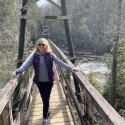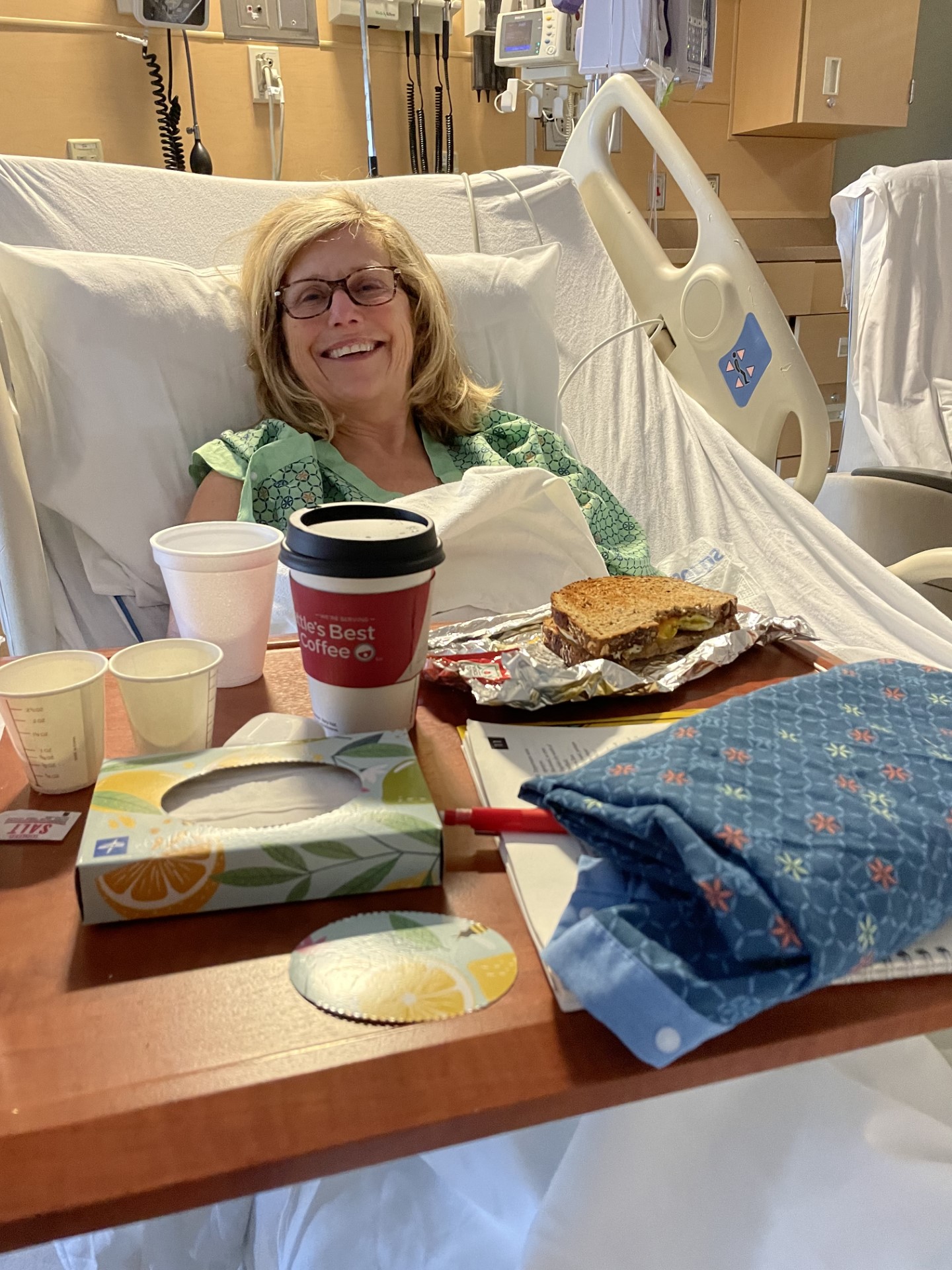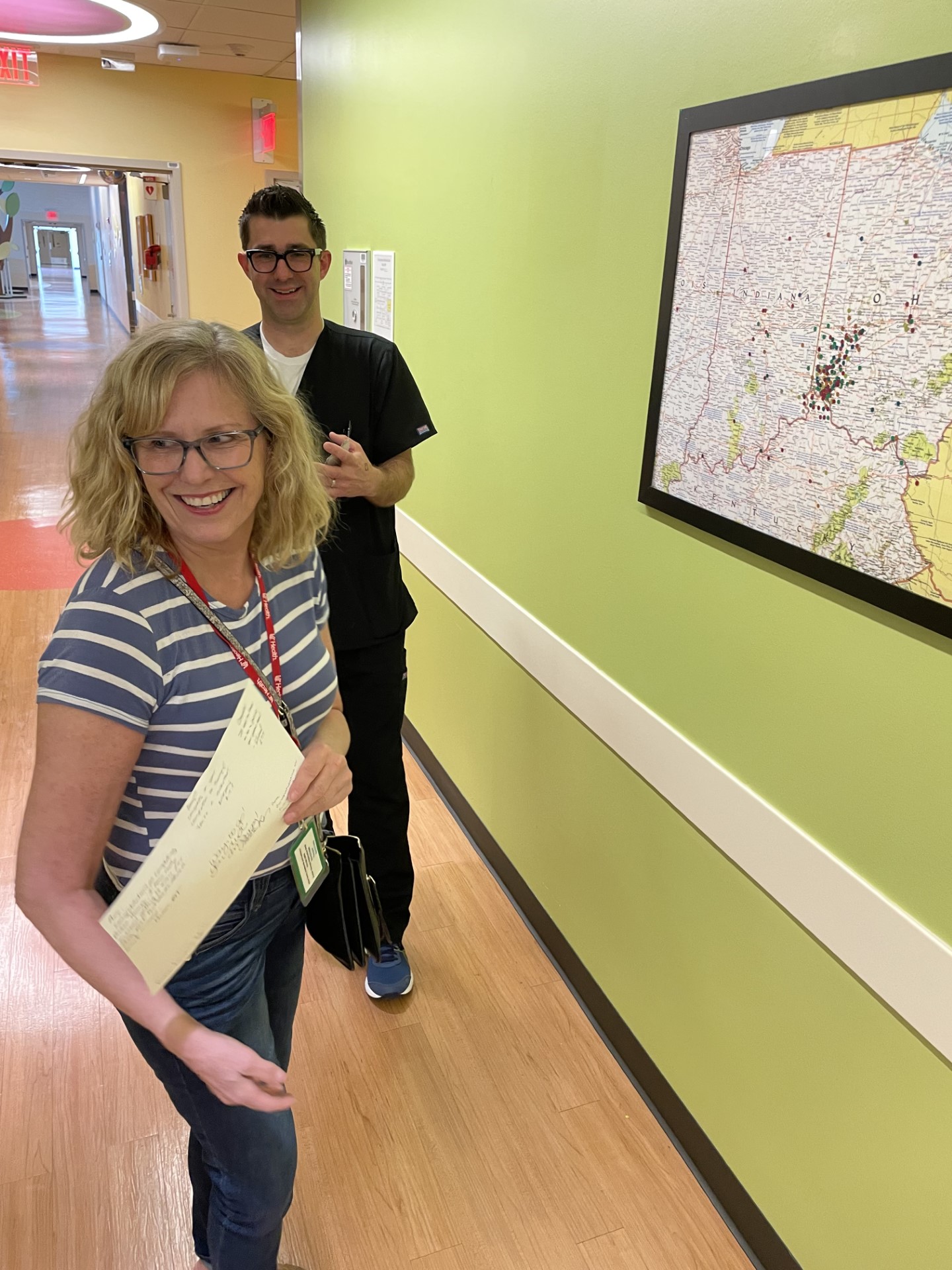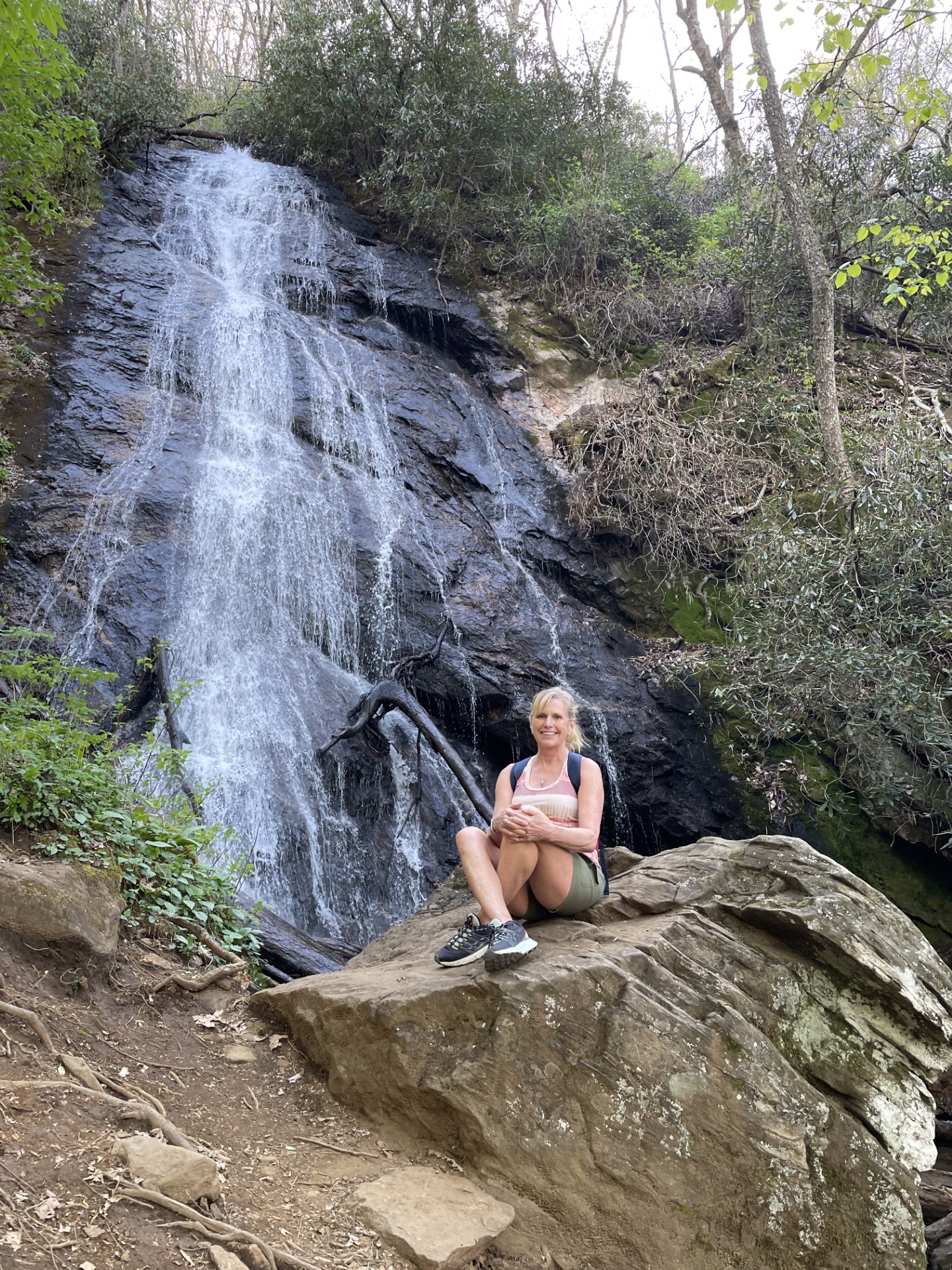Going from Healthcare Delivery to Healthcare Recipient

Name: Amy J.
Type of Cancer: Spinal Ependymoma
Diagnosed: Fall 2022
By: Amy J.
— Categories:
Adult
Spine
Reflecting on My Experience with a Rare Spinal Tumor
It has been almost one year since I spent the Christmas Holiday recovering in the hospital after having surgery to remove a lumbar spinal cord tumor. I had a near complete resection, and for the small amount that was left I completed a 31-day course of Proton Radiation Therapy.
My background in nursing and then research provided me with some great resources. I had worked on a pediatric neurosurgery floor early in my career, before switching to clinical research. Recently I was the director of a global consortium of world-class childhood cancer centers and pediatric neuro-oncology experts who are collaborating to find effective treatments for kids with brain and spinal cord tumors. CNS tumors in children can be devastating, so their mission is of utmost importance. When I found out about my tumor, I called the doctor who chaired the organization and with whom I had worked closely. She is such a kind and compassionate person, and she answered many of my questions about spinal cord tumors. It seems ironic to me that out of all the jobs I’d held I ended up in this one right before I was diagnosed with a spinal cord tumor. My experience of going from healthcare delivery to healthcare recipient has been eye opening in many ways. One cannot overstate the vulnerabilities and fears experienced by patients and families when receiving news of an often life altering CNS tumor.
Recovery is Not a Straight Path
 As far as my recovery, it went rather smoothly initially. My tumor was a Grade II ependymoma that had taken up residence in my conus medullaris and cauda equina, which explained a lot of my symptoms that had been gradually worsening over the past few years. Apparently, the tumor had been there for several years, and by the time it was found, I had bladder and bowel issues, back pain, balance issues, and nerve pain for which I was seeing a variety of specialists and making frequent trips to the ER, with no real answers. I was starting to feel like a hypochondriac and was embarrassed to tell people I had another kidney infection, had fallen again, or was going to the gastroenterologist yet again. About a year and a half before I found out about the tumor, I had written these words in my journal after a distressing situation when I was taking my granddaughter out for the day:
As far as my recovery, it went rather smoothly initially. My tumor was a Grade II ependymoma that had taken up residence in my conus medullaris and cauda equina, which explained a lot of my symptoms that had been gradually worsening over the past few years. Apparently, the tumor had been there for several years, and by the time it was found, I had bladder and bowel issues, back pain, balance issues, and nerve pain for which I was seeing a variety of specialists and making frequent trips to the ER, with no real answers. I was starting to feel like a hypochondriac and was embarrassed to tell people I had another kidney infection, had fallen again, or was going to the gastroenterologist yet again. About a year and a half before I found out about the tumor, I had written these words in my journal after a distressing situation when I was taking my granddaughter out for the day:
“I am not who I used to be, and I am sad about it. What is happening to me? I go to the doctors, and they dismiss me or make it seem like they have a fix or that it is all in my head. Meanwhile I am exhausted and long for the days when I could run for miles, ride my bike, or do normal things without worrying about an impending disaster. If my bowels are like this and my bladder is like this, what about the rest of my organs? And then there is the clumsiness – It is all so embarrassing! The pain I feel and the spasms – all the things I’ve tried just seem like band-aids on some other, bigger problem, that is yet to be discovered.”
The final straw to my long journey was when I started getting what felt like electrical shocks to my groin area. I had recently switched to a new primary care physician, and when I told her about these new symptoms (along with everything else I’d been having), she immediately referred me for an MRI which set the ball in motion. I like to refer to her as my guardian angel!
 I have always been an active person who found it hard to sit still for long. I had completed several half marathons, triathlons, backpacked in the Grand Canyon, and participated in a medical volunteer team in South Africa. I had to gradually give up many of these things because of the symptoms I was experiencing, but I did what I could up until my surgery. I think regular exercise made my recovery go more smoothly. I started physical therapy a couple of weeks after surgery, and within about eight weeks I was able to go back to doing some short, slow walks and hikes, and swim a couple of laps. Since my current job allows me to work from home, I returned to a lighter workload within six weeks. Overall, I felt fortunate that I was doing so well.
I have always been an active person who found it hard to sit still for long. I had completed several half marathons, triathlons, backpacked in the Grand Canyon, and participated in a medical volunteer team in South Africa. I had to gradually give up many of these things because of the symptoms I was experiencing, but I did what I could up until my surgery. I think regular exercise made my recovery go more smoothly. I started physical therapy a couple of weeks after surgery, and within about eight weeks I was able to go back to doing some short, slow walks and hikes, and swim a couple of laps. Since my current job allows me to work from home, I returned to a lighter workload within six weeks. Overall, I felt fortunate that I was doing so well.
This summer I started feeling a lot better and was able to increase my walk/runs, strength training, and swimming. But then I noticed my back pain started getting much worse. I backed off what I was doing but the pain persisted. My follow-up MRI and x-rays showed several lumbar compression fractures and other issues that my radiology oncologist attributed to the radiation. The fact that I’m post-menopausal and may have lower bone density may have contributed as well. I felt scared and saddened all over again, not knowing what the outcome would be. It seemed like a real setback, as I was no longer able to do much but rest, go to physical therapy, and do some warm water exercises. At my last visit it seems that these issues have stabilized and are not worsening, so I will draw hope from that.
Acceptance Takes Time and is an Ongoing Process
 Compared to where I was a year ago, I am happy that I finally got answers, and I’m hopeful that I am still on the path to recovery. I’m still trying to figure out how to deal with my neurogenic bowel and the back pain and nerve pain in my legs, though fortunately most of my urinary issues seem to have resolved. All my years in nursing and research taught me that recovery is not a straight path when dealing with complex situations. Still, I get impatient with myself and long for quick fixes.
Compared to where I was a year ago, I am happy that I finally got answers, and I’m hopeful that I am still on the path to recovery. I’m still trying to figure out how to deal with my neurogenic bowel and the back pain and nerve pain in my legs, though fortunately most of my urinary issues seem to have resolved. All my years in nursing and research taught me that recovery is not a straight path when dealing with complex situations. Still, I get impatient with myself and long for quick fixes.
Going through this experience has made me take stock of what is important in my life, and to appreciate how lucky I am to have so much support. My friends and family have been encouraging and supportive during all my toughest days and every day in between. I am a work in progress, and as I enter what I call my third act, I am learning to accept where I am right now. I strive not to look too far into the future and to be patient with my body. I strive to see the good in my life, and I make sure to maintain a sense of humor. Most importantly, I’ve learned that no matter what store I’m in, the restroom is always in the farthest corner away from me when I’m in the middle of a bathroom emergency, and that is just how life works.
I’m glad I found the CERN Foundation’s website last year. It has been a big help because these types of tumors are so rare and there are not many resources for patients and families. I would encourage anyone going through this to visit their website and to join their Facebook Group.
